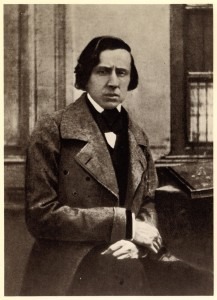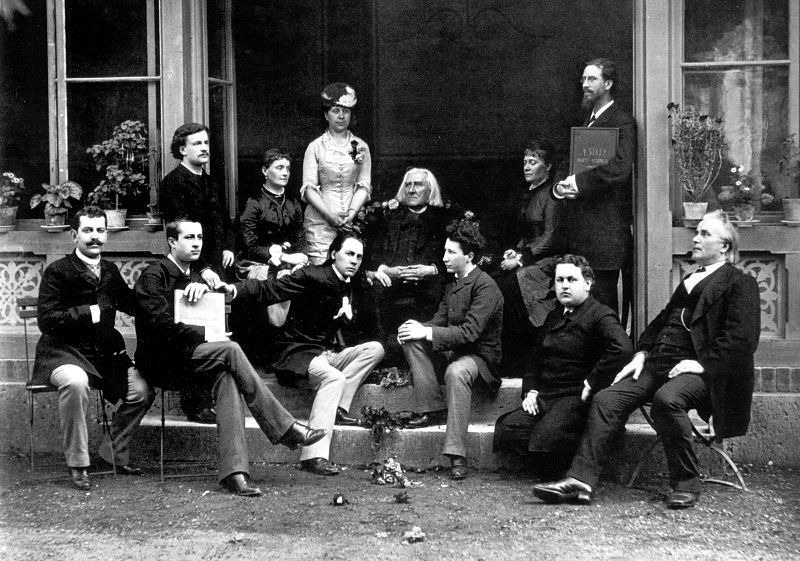
Chopin
Credit: http://3.bp.blogspot.com/
This connection to earlier teachers and pianists interests me: one of my previous teacher’s teachers, Vlado Perlemuter, studied with Maurice Ravel, and was a student of Alfred Cortot, who was a student of Descombes who was, possibly, a student of Chopin. Thus, I could, albeit somewhat tenuously, claim to be a great-great-great-grand-pupil of Chopin! My current teacher studied with Andras Schiff, Leon Fleischer and Nina Svetlanova, amongst others. This remarkable heritage feeds into today’s teachers, making them highly sought after – though some students perhaps think that these teachers can “channel” the great pianists of the past directly to them. This is a rather simplistic and unrealistic view, for what these teachers really do is distil and adapt the wisdom from their own teachers to make it relevant to their own students. A good teacher will be generous with their wisdom and knowledge, while also allowing the student to develop a personal approach to their playing.
The word “teach” comes from the Old English meaning to “show” or “point out” and I think the concept of a teacher as a guide rather than a didactic tutor is a good one. A good teacher also appreciates that teaching is an ongoing learning process in itself: the best teachers are often the most receptive too, and engage in continuing professional development to ensure they remain in touch with current practices and theories. Mix this with that wonderful heritage of past teachers, an ability to communicate well, patience and empathy, and a positive attitude, and you have a truly great teacher.
Vlado Perlemuter play Ravel





